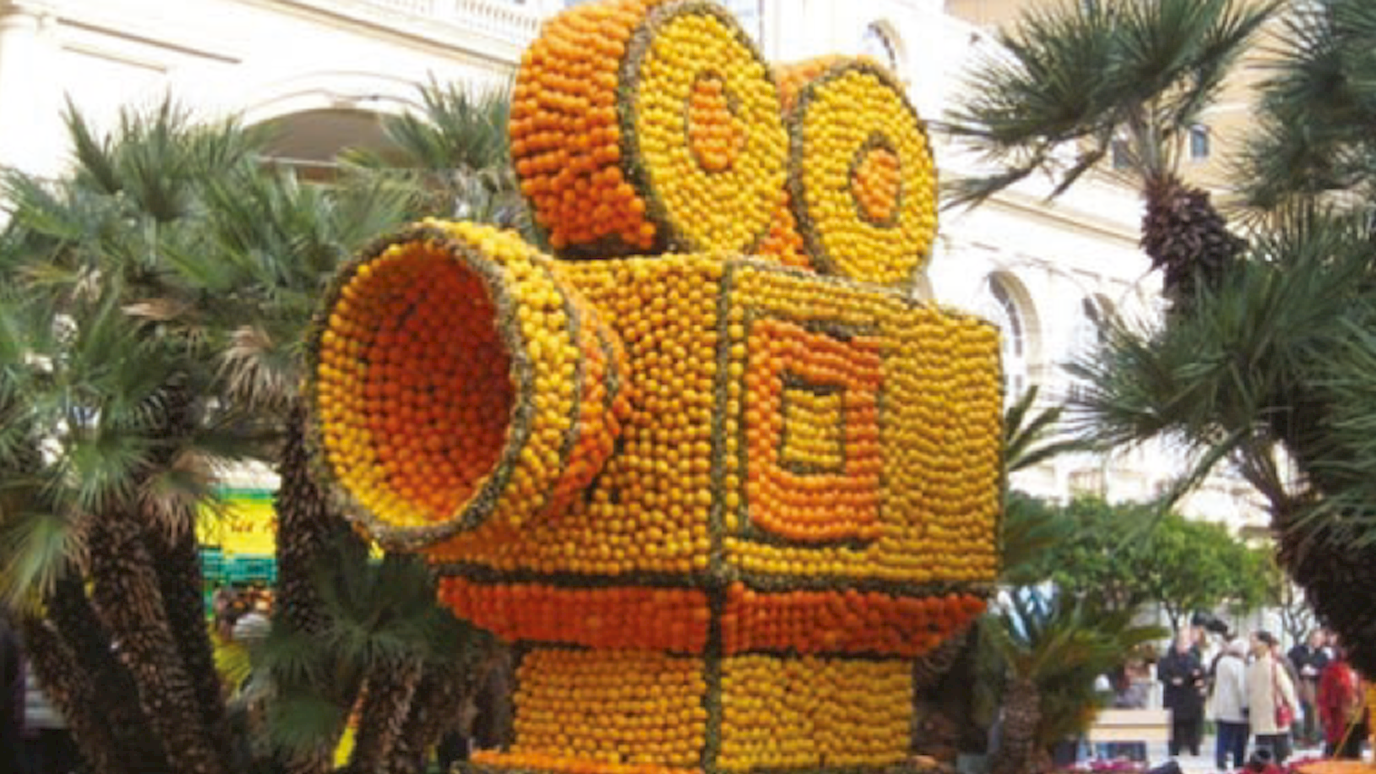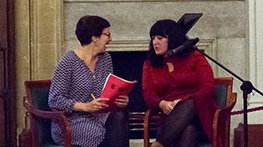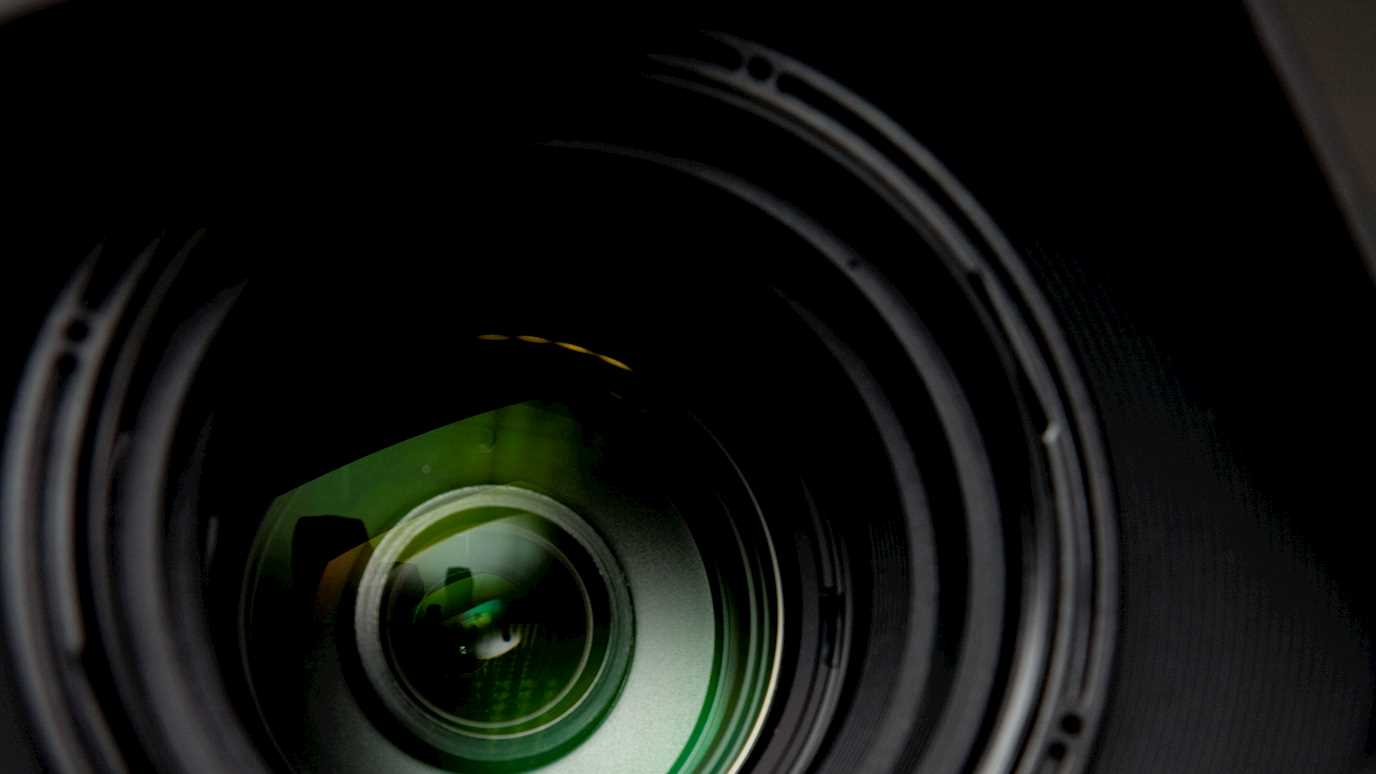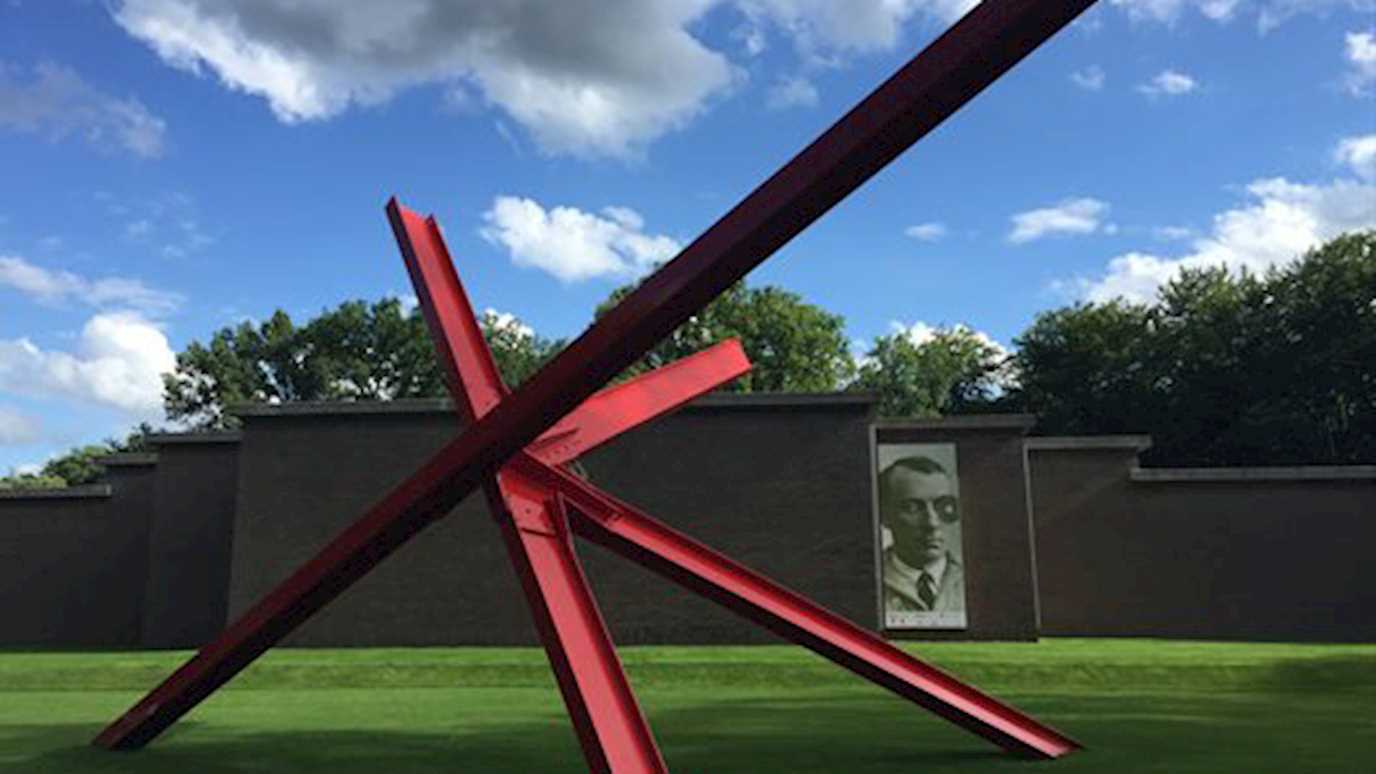Find out how research from the Department of Languages, Literatures and Cultures is making an impact on the world.
Explore some of our recent research projects and activities, and the wider impacts and effects they have achieved, below.
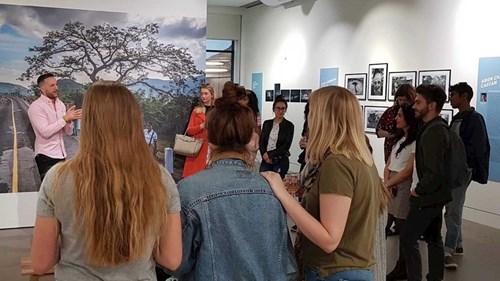
Research in Languages, Literatures and Cultures: Insights and Impacts
International Exhibition: Hans Arp – The Poetry of Forms
Professor Eric Robertson
In 2017-18 Professor Eric Robertson was the co-organsier of a major international retrospective exhibition on the work of the German-French artist Hans Arp (1886-1966). The exhibition drew directly on Professor Robertson's research on Arp, and ran in two major, publicly funded galleries in the Netherlands and the UL: the Kröller-Müller Museum (20 May 2017-17 September 2017) and the Turner Contemporary Gallery, Margate (12 October 2017-14 January 2018). The exhibition was viewed by approximately 190,000 visitors at the two venues, and encouraged appreciation of this extraordinary, multifaceted and transnational artist.
View the Exhibition leaflet in PDF form.
The exhibition also created educational benefits for visitors, with a specially designed programme of activities for schools and younger visitors. At the Turner Contemporary visiting schools made used of educational materials and lesson plans designed for KS1 and 2. You can read more about the results here.
The Guardian wrote of the exhibition: “In the age of Brexit, an exhibition of this sculptor who transcended Europe’s borderlines is a timely reminder of how art can defy national boundaries.”
Dada’s Women: Legacies
Dr Ruth Hemus
Dr Ruth Hemus, author of a groundbreaking studies of the contribution of female artists to the Dada avant garde movement (Dada's Women, 2009;The Poetry of Céline Arnauld: From Dada to Ultra-Modern, 2020), is the driving force behind a collaborative creative project that has produced accessible multimedia performance interpretations of Dada’s extradordinary pioneering women such as Hannah Höch and Céline Arnauld. These have taken place in public spaces, such as at the Hatton Gallery, Newcastle (November 2018).
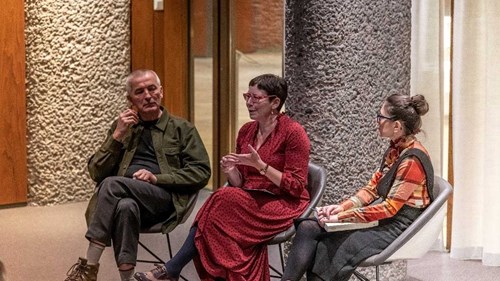
Ruth's work has also provided the direct inspriration for an exhibition staged a three Swiss art galleries between 2014 and 2016, which was the centenary of the founding of Dada in Zürich. In 2017 and 2018 she and her creative team ran educational Dada workshops at the Tate Exchange, and in 2019 she spoke at The Academy of Arts in Oslo (KHIO) at the launch of the 'The Great Monster Dada Show', Henie Onstad, Norway (see above image). Ruth continues to develop collaborations and partnerships around Dada's Women.
Interdisciplinary Italy 1900-2020: Interart/Intermedia
Professor Giuliana Pieri
Professor Giuliana Pieri is the current principal investigator for the AHRC-funded project Interdisciplinary Italy 1900-2020: Interart/Intermedia, working alongside her co-investigators Clodagh Brook (TCD) and Florian Mussgnug (UCL). This ambitious project emerged from a smaller AHRC networking grant (‘Interdisciplinary Italy 1900-2015: art, music, text’) which ran from 2012 to 2014. It has reassessed 20th-century Italian cultural history through an inter-artistic and interdisciplinary lens.
Giuliana's contribution to the project focuses on Italian Modernism and the intersection between the fine arts, design (pre- and postwar) and Italian culture. The key insights delivered by Professor Pieri’s research (see for example her 2018 essay ‘Italian Studies: An Interdisciplinary Perspective’) challenge the narrow focus of monodisciplinary research to reveal a more comprehensive picture of interartistic encounters and new kinds of experimentation. As part of the project, Pieri curated an exhibition at the Estorick Collection of Modern Italian Art, London: ‘The Making of Modern Italy: Art and Design in the Early 1960s’ (Jan-April 2019).
The project has had an educational impact through collaboration with a cluster of UK schools and secondary school teachers, leading to the production of new teaching resources and a range of cross-curricular activities.
Learn more about 'Interdisciplinary Italy' at the project website and blog.
This is Cuba: Documentary Photography after Fidel
Dr James Kent
In 2019 Dr James Kent co-curated the exhibition ‘This is Cuba: Documentary Photography after Fidel’ in Royal Holloway's Exhibition Space. It showcased work by world-renowned photographers such as Raúl Cañibano and Michael Christopher Brown, and was accompanied by a series of talks and workshops including: masterclasses with Cañibano, curator’s talks, and workshops with other academics, practitioners and specialists. It led to a follow-up exhibition at the Photographers’ Gallery London, one of the most important forums for photography in the UK. ‘Raúl Cañibano: Chronicles of an Island’, for which James acted as Exhibition Liaison, ran September-November 2019.
James has recently received funding through the interdisciplinary research project ‘Multilingualism: Empowering Individuals, Transforming Societies’ (led by the University of Cambridge as part of the AHRC’s flagship Open World Research Initiative) to support his work on ‘“¡Yo soy Fidel!”: Post-Castro Cuba and the Cult of Personality’.
James is also a practising photographer - see his personal website for his insights into this project and his own photography.
Inclusive description for equality and access (IDEA)
Professor Hannah Thompson
In January 2021, Professor Hannah Thompson became one of the first cohort of AHRC Fellows for Diversity and Inclusion. As part of her fellowship she will be working on her project 'Inclusive description for equality and access (IDEA)'.
Hannah’s project focuses on inclusive audio description at the theatre. In this year-long initiative, she will be working with audio-description providers VocalEyes and Mind's Eye, access champion Vicky Ackroyd from Totally Inclusive People, and theatre companies including Mind the Gap Studios, The Octagon Bolton, the Donmar Warehouse and Shakespeare's Globe.
This project developed out of the 2019-20 Describing Diversity research project jointly run by VocalEyes and Royal Holloway University of London with additional support from Shakespeare’s Globe and Donmar Warehouse. Its key output was a report, Describing Diversity: An Exploration of the Description of Human Characteristics Within the Practice of Theatre Audio Description. [download the report here]. The report has been cited as a key influence in the development of ITV’s Audio-Description policy.
In 2015 Hannah organised the conference ‘Blind Creations’ which enabled a series of dialogues between blind and non-blind participants, including audio describers, access professionals, allies, artists and advocates as well as academics. She has developed this interest further in her activism-centred research which led to the creation of a pioneering project to enhance accessibility to the University’s art collection through ‘crowdsourced’ audio-descriptions available on Smartify, as well as significant consultancies to public institutions, including the Centre for Access to Football in Europe (CAFE) and the Donmar Warehouse Theatre, which produced an accessible and socially distanced audio installation of Jose Saramago’s novel Blindness in August 2020, which in 2021 is to tour venues across the UK.
Rethinking Goethe
Professor W Daniel Wilson
Emeritus Professor W. Daniel Wilson’s work on Goethe and the Goethe Society is both groundbreaking and provocative. It has reached a broad audience and been instrumental in challenging and changing public understanding of Weimar Classicism and Germany’s most celebrated author. His book on the pre-publication censoring of Goethe’s erotic works by the editors who had access to the manuscripts (between 1795 and 1915) was widely and positively reviewed in the media (Goethes Erotica und die Weimarer ‘Zensoren’, 2015). He wrote a full-page article for the newspaper Thüringer Allgemeine Zeitung; and one of his archival discoveries detailed in the book – that Goethe wrote a letter to Napoleon that was considered so damaging to Goethe’s political reputation that the Grand Duchess Sophie of Weimar destroyed around 1885 – was the subject of an article in the respected national newspaper Süddeutsche Zeitung (21 March 2015).
More recently, Dan's research has focused on the problematic treatment of Goethe in Germany during the Nazi period. A journal issue that he co-edited, Hans Wahl im Kontext: Weimarer Kultureliten im Nationalsozialismus (Publications of the English Goethe Society 84.3, 2015) gathered papers from a conference in Weimar in November 2014. The conference was organised in order to assess the issues around Hans Wahl (1885-1949), the most important cultural leader of his time in Weimar, and his involvement with the Nazi regime as well as the wider issues of cultural elites in Weimar of the same period. Wilson reported on the controversy with material from his archival research in a long article in the Times Literary Supplement (14 March 2014).
After the conference he was interviewed for a regional television news programme about the topic, and subsequently the city council of Weimar asked for the papers and in 2016 voted to change the name of the street on which the Goethe and Schiller Archive is located from “Hans-Wahl-Strasse” to an older name. Wilson’s book on the Goethe Society in the Nazi years that evolved from this and other work, Der faustische Pakt: Goethe und die Goethe-Gesellschaft im Dritten Reich (2018) was widely and positively reviewed in major German-language newspapers such as Die Welt, Süddeutsche Zeitung, Neue Züricher Zeitung and Frankfurter Allgemeine Zeitung, where Christoph Perels remarked that the book ‘forces’ the Goethe Society to face its past (28 Sept. 2018).
A jury of scholars and journalists from Die Welt, West German Radio 5, Neue Züricher Zeitung and Austrian Radio 1 included the book among the best non-fiction books for January 2019. The book was also the subject of an interview on the blog of the Klassik Stiftung Weimar and a television appearance on the programme ‘Campus Talks’ of the national educational network ARD Alpha (15 Feb. 2017), and he published articles in the Frankfurter Allgemeine Zeitung (29 Aug. 2018) and Süddeutsche Zeitung (17 June 2015) on topics related to it. An important review on German radio (Deutschlandfunk) featured an interview with Wilson on the book (18 Feb. 2019). Drawing Wilson’s work, the Goethe Society revised its account of its own history that appears in PDF form on its website, with explicit reference to the book.
The Italian Academies 1525-1700
Professor Jane Everson
The intellectual societies known as Academies played a vital role in the development of culture, and scholarly debate throughout Italy between 1525-1700. They were fundamental in establishing the intellectual networks later defined as the ‘République des Lettres’, and in the dissemination of ideas in early modern Europe, through print, manuscript, oral debate and performance. In a major AHRC-funded project, under the direction of Emerita Professor Jane Everson, significant new insights into this fascinating period were gained.
The project helped to establish a comprehensive database on the Italian Academies 1525-1700. This significant public resource now forms one of the British Library’s (BL) series of Themed Collections - specialised catalogues developed to enhance public access to the BL’s collections.
The project revealed some interesting parallels with the use of modern-day social media in the way the Academies communicated. In addition, the software model developed by the research team has also influenced the revision of other BL catalogues.
Developing Public Understanding of Fascism: The Cult of the Duce: Mussolini and the Italians 1918-2005
Professor Giuliana Pieri
The AHRC-funded research project 'The Cult of the Duce: Mussolini and the Italians 1918-2005', which involved Professor Guiliana Pieri, achieved a better understanding of fascism and its legacy by challenging preconceptions about Benito Mussolini and examining the legacy of his leadership ‘cult’ in Italy and beyond.
The research engaged a wider non-academic audience and improved public awareness of the propaganda strategies of fascism through an exhibition at the Estorick Collection of Modern Italian Art in London: 'Against Mussolini: Art and the Fall of a Dictator' (22 September–19 December 2010).









